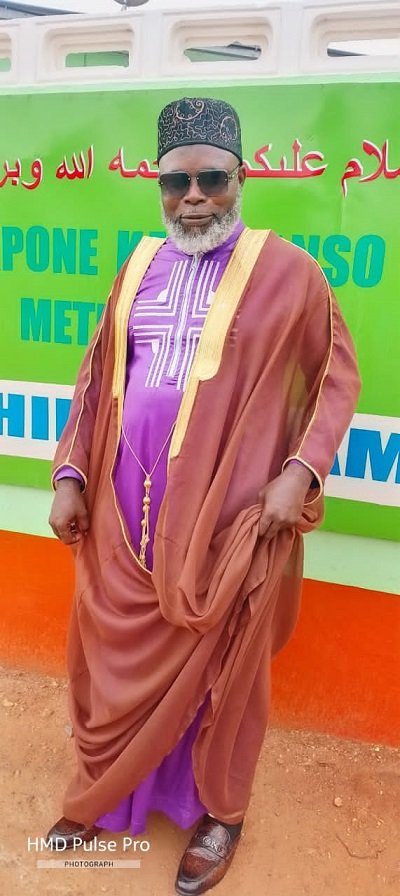Fruitful Living
THE PRESENCE OF THE SON OF GOD IN THE WORD OF GOD
“In the beginning was the Word, and the Word was with God, and the Word was God. He was with God in the beginning. Through Him all things were made; without Him nothing was made that has been made.
In Him was life, and that life was the light of men. The light shines in the darkness, but the darkness has not understood it.
The true light that gives light to every man was coming into the world. He was in the world, and though the world was made through Him, the world did not recognise Him. He came to that which was His own, but His own did not receive Him. Yet to all who received Him, to those who believed in His name, He gave the right to become children of God – children born not of natural descent, not of human decision or husband’s will, but born of God. The Word became flesh and made his dwelling among us. We have seen His glory, the glory of the One and Only, who came from the Father, full of grace and truth” – John 1:1-5, 9-14 NIV
INTRODUCTION
This month we would like to take a journey through the Holy Scriptures and find out who is the Lord Jesus Christ, whose name we bear as Christians and what is said about Him throughout the Bible.
The story of Jesus is not confined to the accounts of Matthew, Mark, Luke and John. Jesus is as visible on the first page as the last. He is as present in the Garden of Eden as He is in the garden tomb. The entire story points to Him. Jesus Himself affirms this when He said, “You study the Scriptures diligently because you think that in them you have eternal life. These are the very Scriptures that testify about me” – John 5:39. Enjoy and share with others.
- In Genesis 3:15; 49:10 He is the Seed of the woman of Shiloh
- In Exodus 12:3 He is the Passover Lamb
- In Leviticus 8:7-9 He is the Anointed High Priest
- In Numbers 21:8; 24:17 He is the Star of Jacob and brazen serpent
- In Deuteronomy 18:15; 32:4 He is the Prophet like Moses and great Rock
- In Joshua 5:14 He is the Captain of the Lord’s host.
- In Judges 2:1 He is the messenger of Jehovah
- In Ruth 2:1 He is the Kinsman-Redeemer
- In 1 Samuel 2:10 He is the Great Judge
- In 2 Samuel 7:13 He is the Seed of David
- In 1 Kings 8:15, 26 He is Lord God of Israel
- In 2 Kings 19:15 He is the God of the cherubim
- In 1 Chronicles 16:35 He is the God of our salvation
- In 2 Chronicles 20:6 He is the God of our fathers
- In Ezra 1:2 He is the Lord of Heaven and Earth
- In Nehemiah 1:5 He is the Covenant-keeping God
- In Esther He is the God of providence
- In Job 19:25 He is the risen and returning Redeemer
- In Psalms 2:1, 7, 12; 16:10; 23:1; 24:7-10 He is the Anointed Son, the Holy One, the Good Shepherd and the King of Glory
- In Proverbs 8 He is the Wisdom of God
- In Ecclesiastes He is the One above the Sun
- In Songs of Solomon 5:10; 16 He is the Chiefest among 10,000 and altogether lovely
- In Isaiah 7:14; 9:6; 52:13; 53:3 He is the Virgin-born Emmanuel; Child and Son; Wonderful, Counsellor, Mighty God, Everlasting Father, Prince of Peace; Righteous Servant, and Man of Sorrows
- In Lamentations 3:22, 23, 31-33 He is the faithful and compassionate God
- In Ezekiel He is the ever present Lord
- In Daniel 2:34; 3:25; 7:13 He is the Smiting Stone, Son of God and Son of man
- In Hosea 13:9, 14 He is the King of the resurrection
- In Joel 2:28-32; 2:11: 3:2, 9-17 He is the God of the battle and giver of the Spirit
- In Amos 4:13; 7-9 He is the God of hosts and the Plumbline
- In Obadiah 1:8, 15 He is the Destroyer of the proud
- In Jonah 2:10; 3:1; 4:9-11 He is the risen Prophet, God of second choice, The long-suffering one
- In Micah 4:1-5; 5:2; 7:18, 19 He is the God of Jacob, the Bethlehemite and the pardoning God
- In Nahum 2:2, 15 He is the avenging God and the bringer of good tidings
- In Habakkuk 1:12, 13; 2:14; 3:13 He is the everlasting pure, glorious and anointed one
- In Zephaniah 3:15 He is the King of Israel
- In Haggai 2:7 He is the Desire of all nations
- In Zechariah 3:8; 6:12,13; 9:9; 12:10; 14:9 He is the Branch, builder of Temple, King of Triumphal entry, pierced one, King of the earth
- Malachi 3:16 He is the Lord of remembrance
- In Matthew 2:2; 27:37 He is the King of the Jews
- In Mark 9:35; 10:43, 44 He is the Servant
- In Luke 2:40, 52; 9:22, 56, 58; 22:48 He is the Perfect man
- In John 1:1-5, 20:28, 31 He is the Eternal God
- In Acts 1:9 He is the Ascended Lord
- In Romans 10:4 He is the Lord our Righteousness
- In 1 Corinthians 15 He is our Resurrection
- In 2 Corinthians 1:3 He is God of all comfort
- In Galatians 4:4, 5 He is the Redeemer from the Law
- In Ephesians 1:22; 2:20; 5:23; 4:7, 8 He is the Head of the Church and giver of gifts
- In Philippians 1:19; 4:19; 2:5-8 He is the Supplier of every need and obedient servant
- In Colossians 1:19; 2:9 He is the Fullness of the Godhead
- In 1 Thessalonians 4:13-18; 5:2, 23 He is the coming Christ
- In 2 Thessalonians 2:8 He is the consuming Christ
- In 1 Timothy 2:15; 3:16; 1:15 He is the Mediator and Saviour of sinners
- In 2 Timothy 4:8; 3:16, 17 He is the Righteous and rewarding judge and author of scripture
- In Titus 1:3; 2:10, 13: 3:4 He is Our Great God and Saviour
- In Philemon is the Payer of our debt
- In Hebrews
- 1:2 He is the appointed Heir of all things
- 1:4; 3:3 He is the One better than the Prophets and angels
- 2:10; 5:9; 12:2 He is the Captain of our salvation
- 2:17; 3:1; 4:14 He is the merciful and faithful High Priest
- 7:25-27; 9:24 He is the Great Intercessor
- 12:24 He is the Mediator of the new Covenant
- 13:20 He is the Great Shepherd of the sheep
- In 1 Peter 1:19; 2:21-24; 5:4; 3:22 He is the Unblemished Lamb, great example, chief shepherd and Lord of Glory
- In 2 Peter 1:17 He is the Beloved Son
- In 1 John 1:1; 2:1-2; 3:8; 4:15; 5:5 He is the Word of Life, advocate , propitiation and Son of God
- In 2 John 1:3 He is the Son of the Father
- In 3 John 1:4, 8 He is the Truth
- In Jude 1:1, 25 He is the Preserver and the only wise God
- In Revelation
- 1:8; 5 :5 He is the Alpha and Omega & the Lion of Judah
- 5:7; 6:17 He is the slain and angry Lamb
- 19:16 He is the King of Kings
- 22:16 He is the bright and morning Star
May you be led by the Holy Spirit to receive Christ as your Lord and personal saviour according to John 1:12-13
Prayer.
Dear Lord Jesus,
I admit that I am not right with you and I ask for forgiveness of my sins.
I believe with my heart and confess with my mouth that You are the Lord and Saviour of my Life. Thank you for saving me. AMEN
Stay Blessed!
For further inquiries please contact us on Tel Nos. 0243588467 or 0268130615
Email: saltnlightministries@gmail.com
Website: saltandlightministriesgh.org
By Dr Joyce Aryee, the author
Fruitful Living
Eid-ul-Adha: A living legacy of faith, sacrifice, and devotion

We begin in the name of Allah, the Most Merciful, the Most Compassionate. We praise Him, seek His help and forgiveness, and seek refuge in Him from the evils of our souls and the wrongs of our actions.
May peace and blessings be upon the Prophet Muhammad (peace be upon him), his family, his noble companions, and all those who follow his path until the Day of Judgment.
Understanding the essence
of Eid-ul-Adha
Eid-ul-Adha, the Festival of Sacrifice, is one of the two major Islamic celebrations observed by Muslims across the world.
It commemorates the unwavering submission of Prophet Ibrahim (Abraham, peace be upon him) to Allah’s command when he was prepared to sacrifice his beloved son Isma’il (Ishmael, peace be upon him). Allah, in His infinite mercy, intervened and replaced the son with a ram, thus honouring Ibrahim’s sincerity and faith.
This moment of sacrifice is recorded in the Qur’an: “Then when they had both submitted and he put him down upon his forehead, We called out: ‘O Ibrahim! You have fulfilled the vision.’ Indeed, We thus reward the doers of good.” (Surah As-Saffat, 37:103–105)
This act of obedience is not merely a historical account. It is a living symbol that forms the essence of Eid-ul-Adha.
Ibrahim (A.S): The Architect
of Submission
Before the moment of sacrifice, Prophet Ibrahim and his family played critical roles in establishing Islam’s foundational pillars:
1. The building of the Ka‘bah
Prophet Ibrahim and his son Isma’il were chosen to construct the Ka‘bah, the sacred House of Allah in Makkah. The Qur’an records this noble moment:
“And [mention] when Ibrahim was raising the foundations of the House and [with him] Isma’il, [saying], ‘Our Lord, accept [this] from us. Indeed, You are the Hearing, the Knowing.’”
(Surah Al-Baqarah 2:127)
This structure remains the spiritual centre of Muslim worship, facing which over a billion Muslims direct their daily prayers.
2. The struggle of Hajar (Hajara) between Safa and Marwa
The mother of Isma’il, Hajar (Hajara), exemplifies a profound lesson of patience and faith. Left in the barren valley of Makkah with her infant, she ran between the hills of Safa and Marwa, desperately searching for water. Her perseverance was rewarded when the well of Zamzam sprang forth at the feet of her baby.
Her sincere struggle is now ritualised in Hajj as the Sa‘i between Safa and Marwa—a reminder of the role of women, the power of du‘a, and the value of trust in Allah’s provision.
Sacrifice at Mina and the
Rites of Jamarat
During Hajj, pilgrims reenact Ibrahim’s confrontation with Shaytan at Mina, where he rejected the devil’s temptation and cast stones at him. This act is now observed in Hajj as the ritual of stoning the Jamarat, symbolising the rejection of evil, temptation, and disobedience.
It is a vivid spiritual lesson: the path to Allah is one of resistance to distraction and sin, and one must be prepared to fight these forces with unwavering faith.
The essence of Arafat in Hajj
The Prophet Muhammad said:“Hajj is Arafah.” (Sunan al-Tirmidhi, 889)
Standing on the plain of Arafat, in deep humility and supplication, is the heart of Hajj. It represents the Day of Judgment, when all of humanity will stand before their Creator. The Prophet said: “There is no day on which Allah frees more people from the Fire than the Day of Arafah.” (Sahih Muslim, 1348)
For pilgrims, Arafat is a time of repentance, reflection, and renewal— and for non-pilgrims, fasting on that day is highly recommended.
Three core lessons from the
Sacrifice of Prophet Ibrahim
(A.S.)
1. Absolute obedience to Allah
Ibrahim’s willingness to sacrifice his son teaches that the essence of faith is unquestioning obedience to Allah. He prioritised divine command over emotion, logic, or comfort.
Takeaway:
In our lives, we must also be ready to put aside our desires, egos, and even attachments if they conflict with Allah’s instructions. This may involve sacrifices such as waking up for Fajr, staying away from haram income, or being truthful in difficult situations.
2. Sincere intention and inner sacrifice
The real essence of the sacrifice lies in the heart’s submission to Allah.
It is neither their meat nor their blood that reaches Allah, but it is your piety that reaches Him.”
(Surah Al-Hajj 22:37)
Takeaway:
Every act of worship should be grounded in sincerity. Whether it is prayer, charity, or sacrifice, what matters most is the purity of our intention.
3. Sacrifice for the greater good
The legacy of Eid-ul-Adha teaches us that sometimes, faith requires us to give up what we love for a greater purpose. Sacrificing wealth, time, or status in the path of Allah or for the benefit of others leads to spiritual elevation.
Takeaway:
Use your resources such as time, money, skills, for acts of benefit: support the poor, educate the young, assist the sick, and build your community.
Celebrating Eid-ul-Adha: A
Festival for all Muslims
Even for those who do not go on Hajj, Eid-ul-Adha holds immense significance. Muslims across the world participate in the act of Qurbani (sacrifice) to honor the tradition of Ibrahim (A.S.).
Types of animals and their
symbolism
Permissible animals include goats, sheep, cows, and camels. Each must meet a minimum age and be free of defects. The sacrificed animal is then divided into three parts: one for the family, one for relatives and friends, and one for the poor and needy.
This distribution reflects the spirit of sharing, compassion, and social responsibility—values at the heart of Islam.
The eternal message of Eid-ul-Adha
Eid-ul-Adha is not merely a celebration; it is a living tradition that calls us to:
• Submit like Ibrahim,
• Strive like Hajar,
• Sacrifice like Isma’il,
• Reflect like the pilgrims at Arafat.
May this Eid awaken within us a renewed commitment to obedience, sincerity, and compassion.
Let us make every Eid-ul-Adha a step forward in our spiritual journey, embodying the values of submission, sacrifice, and service to humanity. I wish every Muslim Eid Mubaarak
By Imaam Alhaji Saeed Abdulai
(Kpone Katamanso Metropolitan Chief Imaam)
Fruitful Living
Steps taken by government to combat illicit drugs (Final part)
The Minister for the Interior, Muntaka Mohammed-Mubarak, has reaffirmed the government’s commitment to combating drug abuse and illicit trafficking for a safer environment which would
go a long way to make Ghana a drug-free country. 3News.com (2025)
Solutions to Illicit Drugs from the Islamic perspective
are comprehensive and emphasise of both prevention and treatment:
Tarbiyah (Islamic nurturing): Instilling strong Islamic values from childhood through Qur’anic education, regular prayer, and association with righteous companions.
Community preaching (Da’wah): Imams must consistently raise awareness during khutbahs and Islamic programs about the dangers of drugs and the beauty of a sober, productive life.
Faith-based rehabilitation: Mosques and Islamic centers can partner with medical institutions to offer Qur’an therapy, spiritual counseling, and structured recovery programs.
Islamic youth clubs: Providing youth with halal entertainment, mentorship, and purposeful engagement can steer them away from harmful peer groups.
Zakat and Sadaqah: Channelling funds to support families of victims and establishing centres for rehabilitation.
Role of Parents, Society, Muslim Chiefs and Imams:
Parents must be vigilant and provide emotional support. A loving, nurturing home reduces a child’s vulnerability to drugs.
Society should de-stigmatize addiction. Drug users should be seen as patients needing healing, not criminals deserving rejection.
Muslim Chiefs must lead community campaigns, setting moral examples and supporting policy enforcement.
Imams must be more than religious leaders—they must become counsellors, educators, and advocates. Their leadership can shift public perception and guide collective action.
Conclusion
Illicit drugs pose one of the most dangerous threats to our society, undermining our religious values, harming our youth, and destroying our future. The Islamic position is clear and
Unequivocal: such substances are forbidden due to their destructive consequences on all aspects of life. Islam does not merely condemn the act but calls for a holistic response—spiritual, social, and structural.
As a society, particularly as Muslims, we must rise to confront this crisis with faith, compassion, and commitment. We must not only preach against drugs but actively work to rehabilitate victims, educate the next generation, and partner with public institutions to create a society of wellness and righteousness.
Recommendations
1. Introduce Islamic drug awareness education in madrasas and public schools, using Quran and Hadith-based materials to instill moral responsibility.
2. Create partnerships between the Ghana Narcotics Control Commission, Ghana Health Service, and Muslim organisations to develop culturally sensitive rehabilitation centres.
3. Train Imams and teachers in basic mental health and drug abuse counselling to serve as front-line responders in communities.
4. Utilise Friday sermons (khutbahs) nationwide to address the dangers of drug abuse periodically and provide practical steps for prevention.
5. Encourage community surveillance, where parents, chiefs, and youth groups report dealers and suspicious activities to the authorities.
6. Establish mentorship programmes in every Muslim community where successful, drug-free role models mentor youth.
7. Form interfaith coalitions, working across religious lines to tackle the drug menace as a national threat rather than a religious issue.
8. Provide job skills training for rehabilitated victims, helping them reintegrate into society and live dignified, self-sufficient lives.
By Imam Alhaji Saeed Abdulai, the Author







